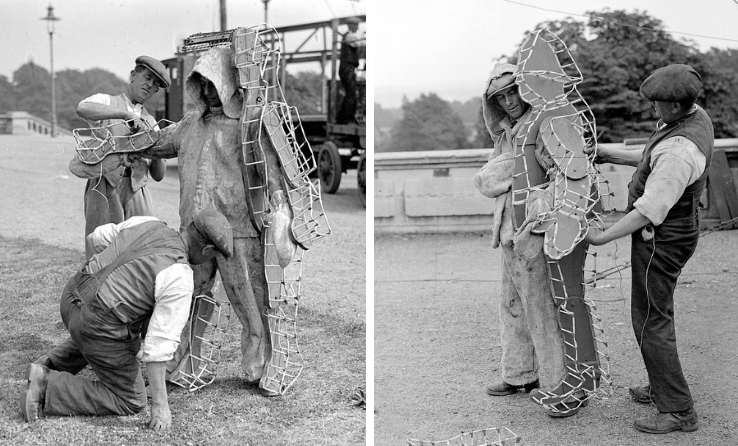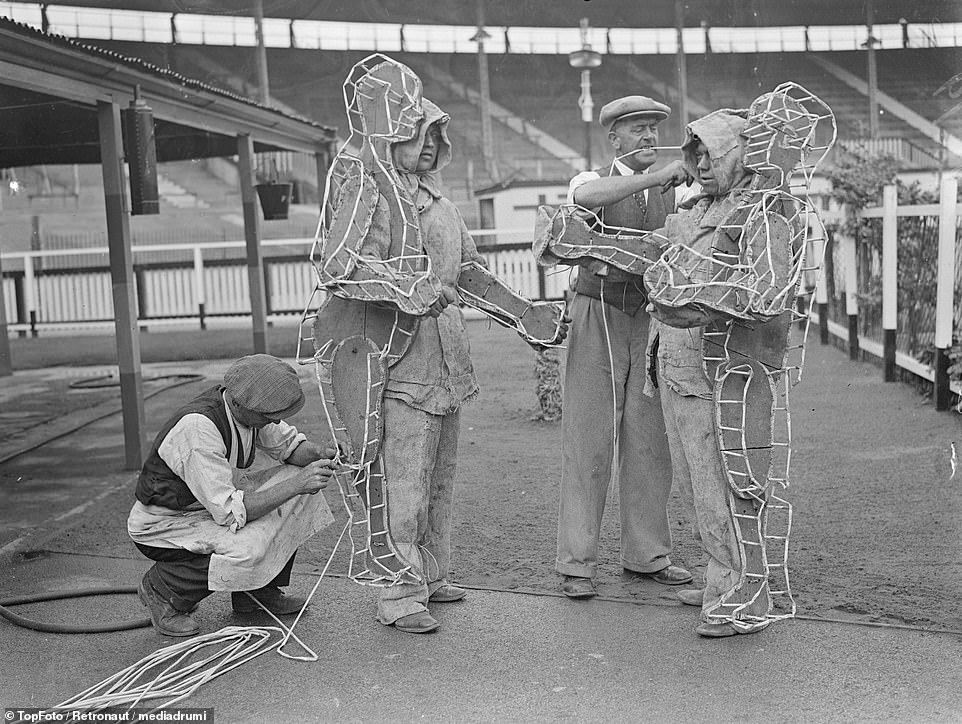The origins of fireworks can be traced back to seventh century China but they only came into widespread use in Britain in the late 13th century, with bonfire night celebrated from the 1650s onward to mark the arrest of Guy Fawkes and the failure of the 1605 gunpowder plot to blow up the Houses of Parliament.
As you can see from these incredible black and white photos, in the 1930’s, London firework spectacles at venues like White Castle and Crystal Palace, displays would involve men being transformed into ‘human fireworks’, as they prepare to be set alight with a set of explosives strapped to their bodies, and fight one another, protected only by white asbestos suits. The suits were intended to protect the wearer from heat and sparks, since asbestos was once hailed as a ‘miracle fibre’ for its fire resistance. Of course, we now know the serious health risks of asbestos exposure.


As you prepare for Bonfire Night (November 5th) with fireworks and bonfire celebrations,it’s worth a reminder not to burn unknown or potential asbestos containing materials, as the airborne fibres can spread beyond your property, affecting neighbouring homes and public spaces. The exposure to asbestos as this can lead to life threatening illnesses, such as mesothelioma, asbestosis and lung cancers.
When organising a bonfire, particularly for those wanting to use unwanted materials, it’s essential to ensure that only appropriate materials are burned.
Materials Suitable for Burning:
- Untreated garden waste such as branches, leaves and other natural vegetation
- Clean, dry, and untreated wood.
- Small amounts of plain cardboard and paper.
Materials That Must Not Be Burned:
- Roofing sheets, wall panels, or other construction materials of uncertain composition
- Insulation boards, textured coatings, or garage cladding – especially those installed prior to 2000.
- Any item known or suspected to contain asbestos containing materials.
- Industrial or commercial materials, or any items originating from demolition or refurbishment projects.

If you are not completely certain of a material’s content or origin, do not include in your bonfire, improper burning or disposal of asbestos can result in fines, legal action and environmental damage.
How We Can Help You
Bradley Environmental is one of the leading Asbestos Consultants in the UK offering a range of Asbestos Risk Management and Removal Services. We advise our clients on the most efficient and economically advantageous way to manage asbestos, without compromising on safety issues.
For more information on the services we provide, email us at

